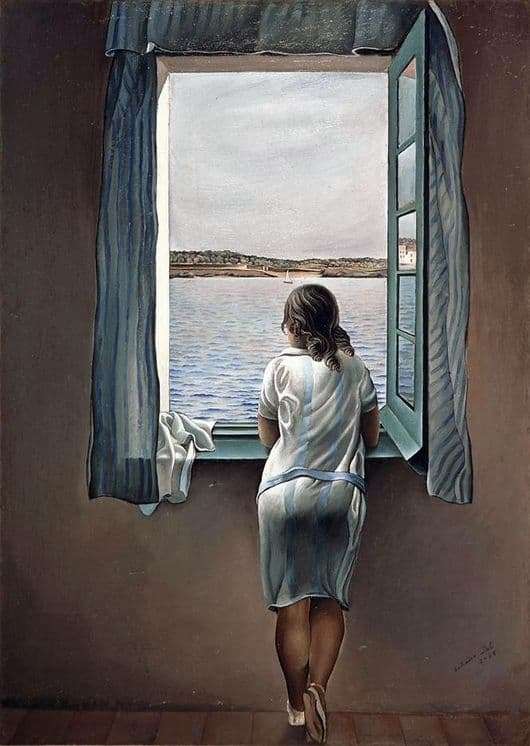
It is true. I have published a book and I hope you purchase Ben Mazer and the New Romanticism (available at Amazon, etc.) because whether you agree with all of its contents—or half or 10%—you will be a better person afterwards, and a better poet. This is my intention—not agreement, which makes me think of a dictatorship. I’ve always been drawn to Criticism because of my free and rebellious nature.
This book is not about Ben Mazer, with all due respect to this illustrious author; it is about me (and how I think).
As a young poet, upon the wide boulevards of New Haven, Connecticut, at the friendly and serviceable state college there, I fell under the spell of Socrates, for the simple reason that conversational rigor appealed to me—I wanted to get to the bottom of things through talking. “The End” by the Doors, Freudian and Gestalt Psychology, Shakespeare and the theater also appealed to me.
My professor in “Literary Criticism from Plato to Eliot” impressed me with her Plato (emphasis on the creator) Aristotle (emphasis on the created) dichotomy.
Her class (she was my intellectual mother) is where Plato’s muse Socrates first spoke to me.
My love of poetry was mugged by philosophy.
This made my love of poetry stronger—in so much as I distrusted it. I surrendered to the idea that Socrates was my friend, was pushing me onward, was not dragging me down; that Criticism and skepticism were good for poetry, and poetry was good for Criticism—a rapport between them developed in my mind (and it forced me to come to terms with what made poetry truly good apart from philosophy) and this saved me from a number of things: misanthropy, despair, authoritarianism, anarchism, self-pity, fanaticism.
It was my fate to be broadly optimistic, as well as critical and caustic, in my approach to literature.
I also had a popular and outgoing German professor at Southern (an American, of Austrian descent) who would joke that he had a “different personality when he spoke German,” and I could see this was both true and not true. We studied Thomas Mann’s Tonio Kroger, the story of a young poet who yearns (somewhat successfully) to belong to normal society—my professor said it was Mann’s belief “the artist was sick.” I accepted this: normalcy was good, but the outsider poet was good, too. The two poles were equally good.
I think the important lesson I learned at the beginning of my intellectual life (largely unconsciously I suppose) was that no one else could make me choose sides; all my intellectual decisions and choices were mine—down to the very bedrock of conceptual thinking itself, from mathematical abstractions to societal nuances—and in none of these would I ever have to rest. I didn’t need to defend poetry, defend normalcy or defend anything—I only had to defend my own arguments, and these could be whatever I wanted them to be. This made me happy—exhilarated, in a manner I understood intensely, without ever having to explain it, or think about it.
And when I say I was happy, I mean happy as a person—not as a writer, or a poet, or an intellectual. This is important.
How boring for a poet to write poetry or talk about poetry. It is more interesting to me when a person talks about these things. What do you, as a poet, think about poetry? How boring. What do you as a person, think about poetry? OK, now we’re getting somewhere.
There must be a strangeness, a separateness between things, before there can be understanding.
No one wants to critique poems. We would rather read them with pleasure. All poems do not give us the same pleasure—this asymmetry, however, still does not demand critique; let us merely find the good poems and read those.
Criticism has nothing to do with the poems. Criticism belongs to pleasure in argumentation itself.
Poetry never advances.
Only the fame of poetry can advance—poems, poetry, and poets can be more or less famous tomorrow than they are today; and we can perceive this.
Poetry itself, as such, and the pleasure poetry provides as poetry—or as poetry with other things attached, which also might provide pleasure—cannot, in general, be measured.
Criticism, therefore, can only belong to itself. A criticism of a poem is completely separate from the poem.
But the criticism has this advantage: there is far less criticism than poetry. There is so little criticism of poetry (and the point has already been made that the poetry lives separately from any criticism of it) that we can measure criticism’s impact.
Reviewing—quoting copiously from the poems under review—is not Criticism.
Close reading is not criticism. It is enough that the Critic reads poetry—no need to map his eyeball.
A biography of a poet is not criticism, either.
Nor should a misguided treatment of any text be properly called Criticism.
Making an argument which is valuable in itself while speaking on poetry is Criticism—and this is very rare, and belongs to the highest aspirations of literature, and we could make a small list of who these critical authors are (there are not many).
Therefore we can say:
Criticism does advance.
Argument is the defining word here.
There are many critical observations. But they don’t count as Criticism, as wonderful as they are, since they lack the joy of argument.
One thinks of Robert Frost’s remark that free verse is like playing tennis with the net down.
Or Emily Dickinson’s famous poem, “I Never Saw a Moor”
I never saw the Moor —
I never saw the sea —
Yet know I how the heather looks
And what a Billow be.
I never spoke with God
Nor visited in Heaven —
Yet certain am I of the spot
As if the Checks were given —
It should not harm poetry—nor criticism—to say Dickinson’s poem makes philosophical and critical gestures but remains a poem.
Ben Mazer’s poetry came into my Criticism. My Criticism did not wander into Mazer’s poetry.
His poetry exists in two places now. This is how poetry breeds—by Criticism.
This is the principle of Eliot’s Tradition, in which the present changes the past.
Here is what poetry always seeks in the first place—for a qualified measure to replace a quantified one.
Criticism is one more dimensional leap for the leaping poet fortunate enough to be taken up by the Critical spaceship.









